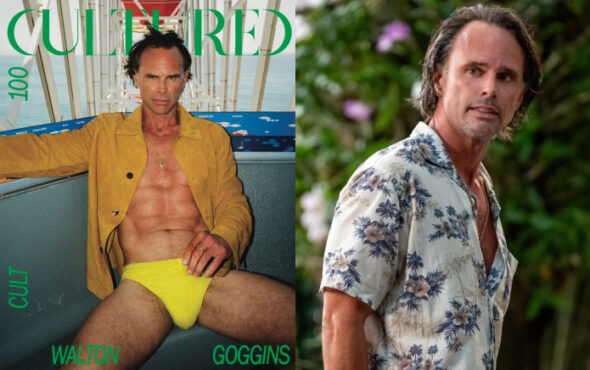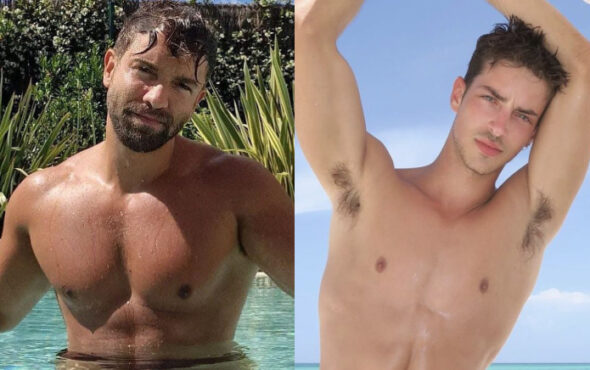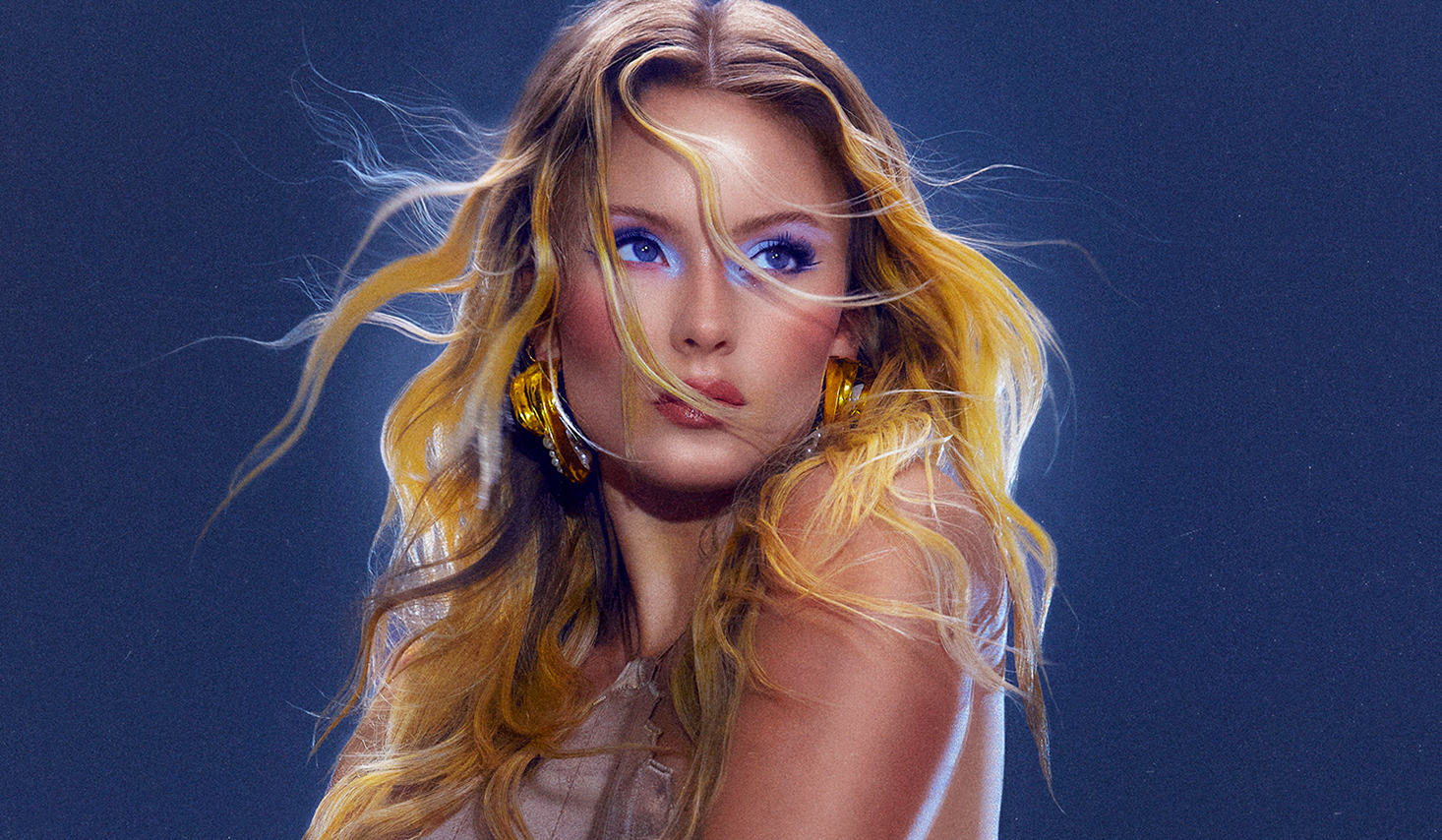
When Zara Larsson calls herself “a little boss lady”, there’s only one thing we could possibly quibble with. Really, there’s nothing “little” about everything the Swedish pop queen has achieved in her already substantial music career. At 26, Larsson has been racking up international hits for the best part of a decade. In her homeland, she shot to fame even earlier when she entered the TV talent show Talang as a 10-year-old. She sang Celine Dion’s ‘My Heart Will Go On’ in the final – brilliantly; you can find it on YouTube – and won the whole thing.
Since then, Larsson has swapped power ballads for bombastic pop bangers that show off her full-throttle vocal style – even as a teenager, she sang like a grown woman – and sassy, self-aware personality. Powerful but playful, she’s always been given her flowers by queer pop fans who call her “Mother Larsson” even if they’re the same age as she is. Her signature hits ‘Lush Life’ (2015), ‘Symphony’ with Clean Bandit (2017), ‘Ruin My Life’ (2018), ‘Don’t Worry Bout Me’ (2020) and ‘Words’ with Alesso (2022) fill dance floors at LGBTQIA+ venues from Malmö to Manchester. ‘Can’t Tame Her’, the lead single from Larsson’s gleaming new album Venus, features her quintessentially fun brand of strength and empowerment. “Club is closin’, but she ain’t goin’ home,” Larsson sings with a hair flick in the video. It’s a campy lyric to quote on your next big night out.
Another of Larsson’s pop glitter-bombs, her flawless but slightly underperforming 2019 single ‘All the Time’, has become a staple at queer pre-drinks and afters – something that hasn’t escaped her attention. “The mainstream [audience] wasn’t really hopping onto that song, but the gays, they loved it!” Larsson says with a smile. “I was like, ‘Hey, I see you on my timeline!’ But I also saw it when I performed that song live. Even though ‘All the Time’ didn’t break any records or chart super-high, I still felt that really strong support.”
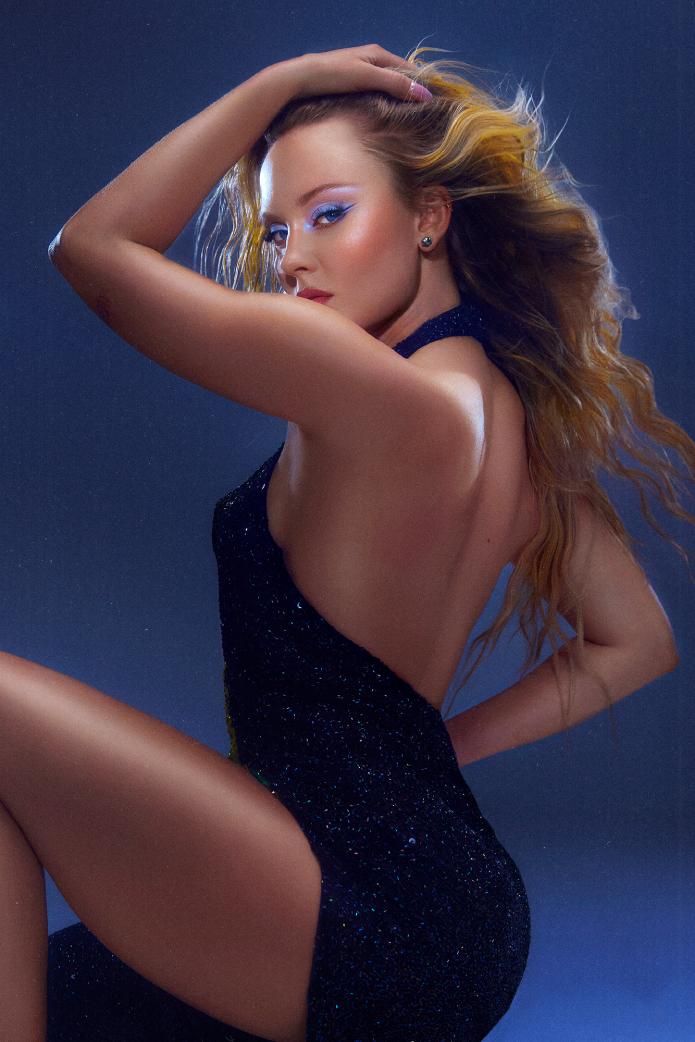
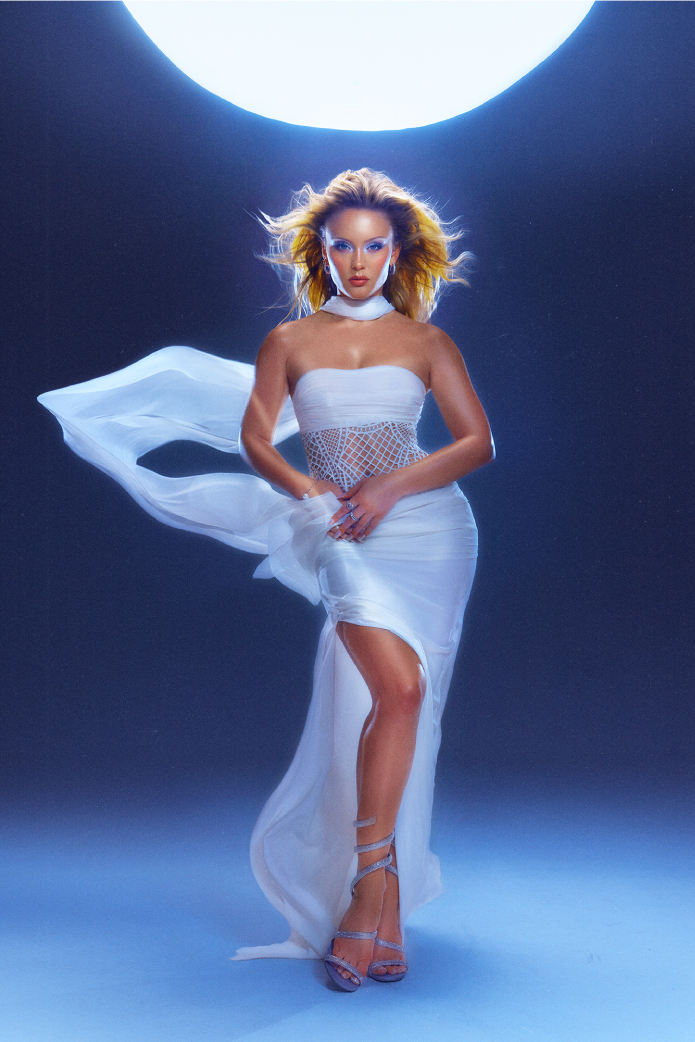
When we speak over Zoom, Larsson is sitting in a plain white radio station conference room, but the bland backdrop only makes her look more vivid. She’s wide-eyed, rocking camera-ready makeup and teams with easy charisma. It’s 9.15am, but Larsson says she’s been awake “for half a day already” after a brace of early morning interviews. Is she used to it after ten years of being, well, a Main Pop Girl? “I don’t like it and I don’t think I’ll ever like it, but it’s fine,” she says, before adding in an ironic American accent: “You do what you gotta do!” If Larsson is flagging a bit, you wouldn’t guess. She’s as fun and unfiltered as she always seems on social media, where she doesn’t feel the need to hide her personality or her opinions. Her most famous tweet, from 2017, was wickedly provocative: “I’ve said it and I’ll say it again. Man hating and feminism is [sic] two different things. I support both.” Today, she sometimes throws herself down a conversational rabbit hole, pauses, then asks with a self-deprecating eye roll: “I’m sorry, what was the question again?”
This infectious energy also comes across on Venus, Larsson’s fourth studio album, but the first to be released on her own label, Sommer House. She named the 12-track collection, her follow-up to 2021’s breezy dance blast Poster Girl, after the Roman goddess of love because “it’s a beautiful word that ties all the tracks together”. Larsson says Venus is very much an album about love, but one that recognises “it isn’t always smooth-sailing and flawless”. Final song ‘The Healing’ is a stunning piano ballad about working on yourself before you give yourself to someone else. Other tracks have lashings of sass. On ‘None of These Guys’, Larsson boasts about her partner’s efforts to please her. “And I give him straight As, but I deserve only Ds,” she sings with a wink, relishing the shameless double entendre.
If Venus sounds like Larsson’s most confident album to date, that’s probably because she has more control over her career than ever before. In 2022, she bought back her entire catalogue from TEN Music Group, the independent Swedish music company that she signed to as a 13-year-old in 2011. Buying back her masters was a boss move, quite literally, that Larsson coupled with launching her Sommer House label. Sadly, as we all know, some of her peers have been denied the same agency. Taylor Swift launched her industry-shaking campaign to re-record her first six albums as “Taylor’s Versions” after learning, crushingly, that her masters had been sold to music manager Scooter Braun without her prior knowledge.
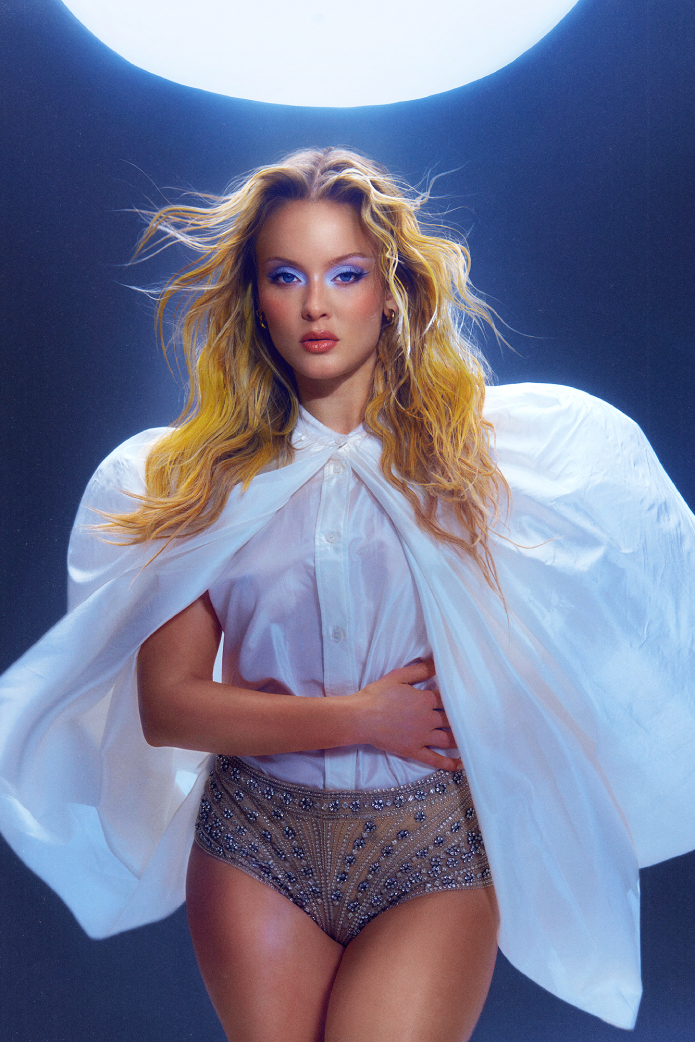
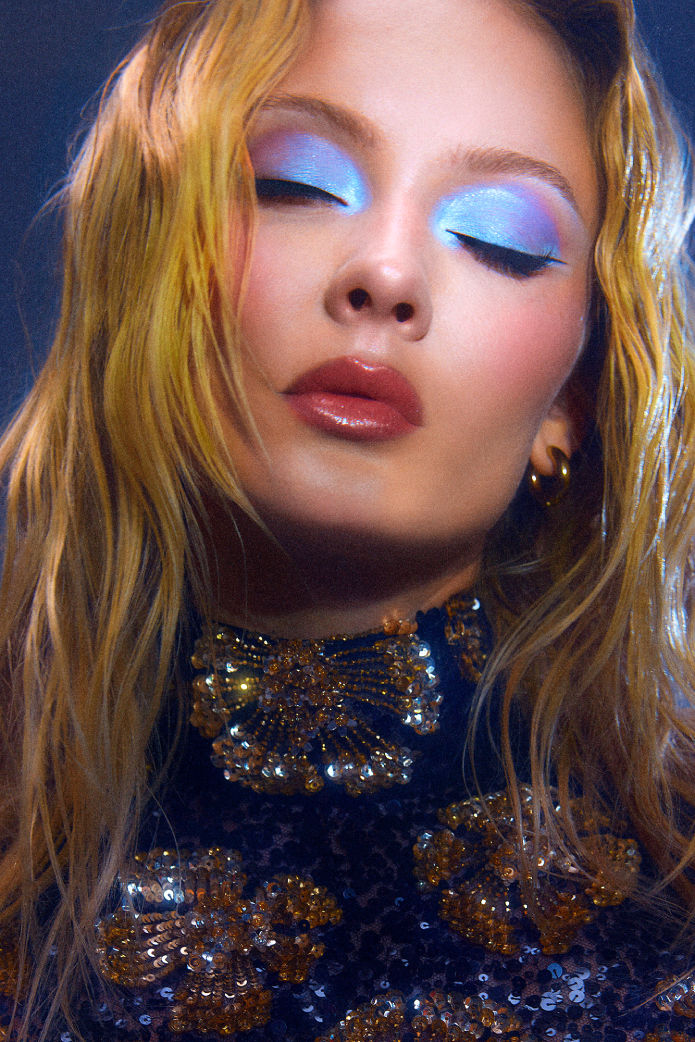
Larsson says that as he was planning his retirement, TEN Music Group’s CEO, Ola Håkansson, saw what happened to Swift and thought “that’s a fucking nightmare”. He duly offered Larsson the opportunity to purchase her masters. “And honestly, it was a no-brainer,” she says. “It’s like my retirement fund, you know what I mean? I’m in it for the long run.” Larsson started writing songs in 2015 – her first ever session yielded ‘Never Forget You’, a hit duet with UK artist-producer MNEK – but the deal also gives her control over tracks she didn’t write. “I don’t have a [writing] credit on ‘Lush Life’, but it’s such a career-defining song and [part of] my identity as an artist. And now it’s up to me if someone wants to sample it or use it in a commercial,” she says. “Which is the way it should be.”
With her “boss lady” hat on, Larsson grew more assertive in the studio while making Venus. Her collaborators included Rick Nowels, a Grammy-winning producer who has worked with everyone from Madonna to Lana Del Rey. “He said to me: ‘We’re gonna have fun, but this is serious business: I want you to come in with subjects for songs, titles, chords, ideas,'” Larsson recalls. “That pushed me to be a better writer.” Larsson has plenty of respect for Nowels, whom she rightly calls a “legend”, but never let herself get overawed. “I wrote a lot and realised the worst that could happen is Rick saying: ‘I don’t like that.’ But I also realised that I don’t care,” she says, before self-editing slightly. “Obviously I care what his opinion is,” Larsson continues, “but at the end of the day, if there’s something I like that he doesn’t, we’re gonna do it my way. It’s my song, my project.”
Larsson also worked closely with Casey Smith, an LA-based singer-songwriter who co-wrote the album’s thumping, fatalistic second single ‘End of Time’. For Larsson, teaming with a fellow female professional was a way of paying it forward. “I really wanted to give a chance to a woman – like, if I’m gonna have a hit, I thought it would be amazing to have a hit with another woman,” she says. Smith’s presence also brought “a refreshing” new energy to the creative process. “There are certain life experiences that you just don’t have to explain to another woman,” Larsson says.
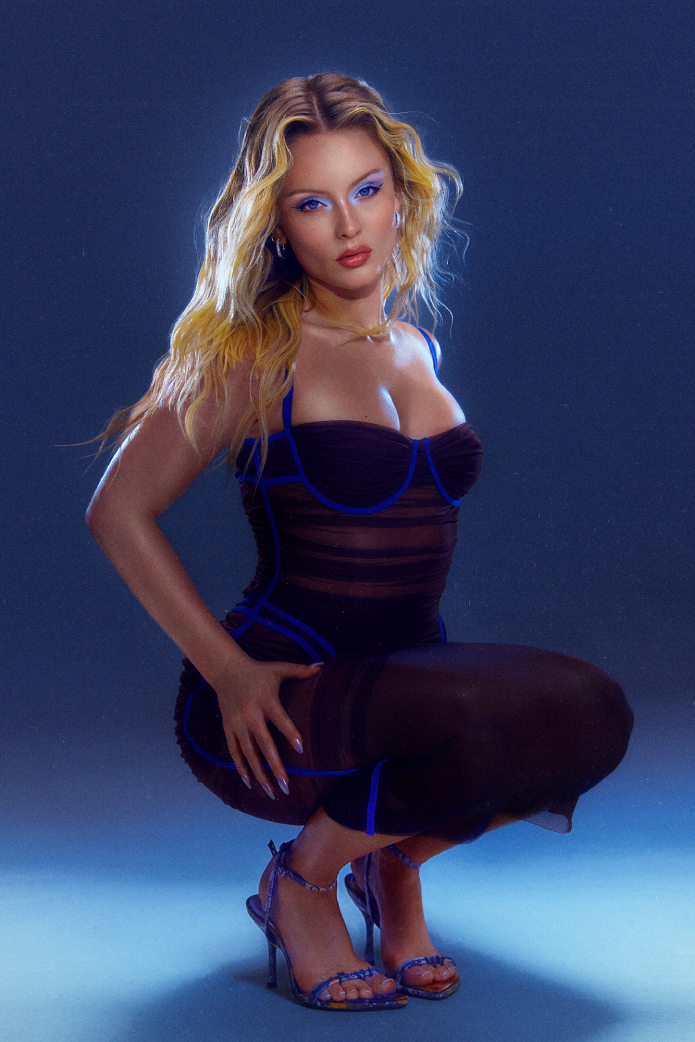
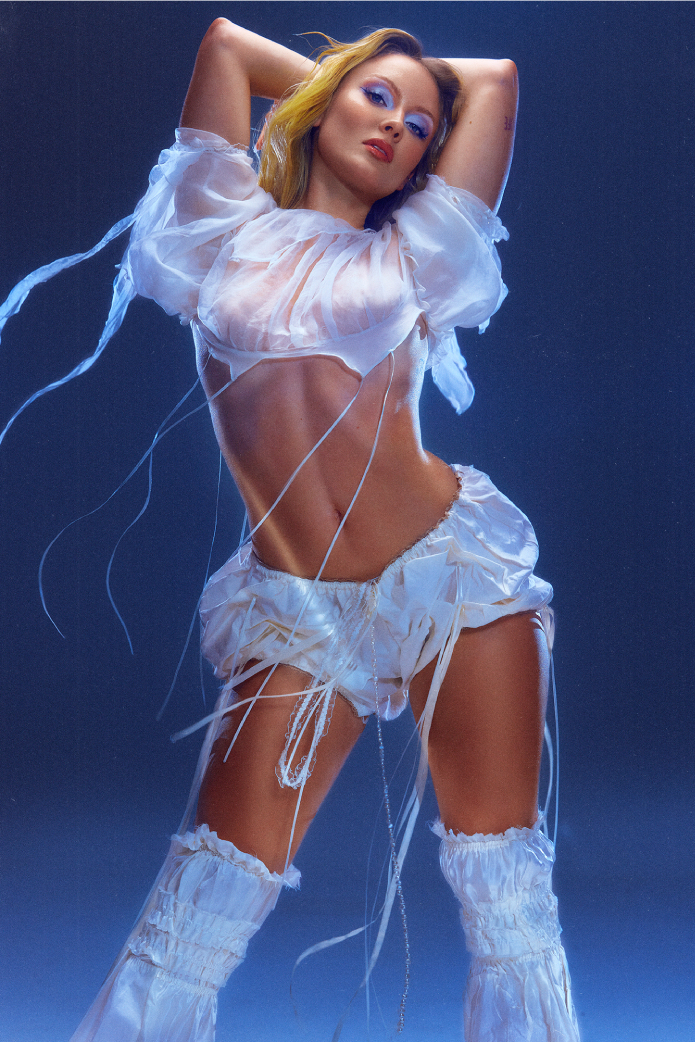
The “intimate” atmosphere she fostered with Nowels and Smith was a far cry from the testosterone-filled sessions she found herself in as a teenager. “I’ve been in rooms with me and 10 guys,” Larrson recalls. “I was like 17 and feeling intimidated. Some of those guys were fucking weird, let me tell you that. Others weren’t, but it’s still like, ‘How are you gonna relate to me? You’re 35 and there’s nine of you.’ Sometimes they’d bring in girls to party with or, like, have a dick-measuring contest. It was very weird.”
How did she navigate these male-dominated (and sometimes pretty icky) spaces at such a young age? “I’ve been very, very protected by my family,” she says. Larsson’s parents aren’t performers – her mother Agnetha is a nurse, while her father Anders was a navy officer – but they supported her pop dreams from the start. “I’ve been in weird situations for sure,” Larsson continues. “But I can only imagine what I would have gone through if my mum hadn’t come with me everywhere.”
Other Venus sessions re-teamed Larsson with MNEK, whom she calls her “favourite collaborator”. In fact, she’s heading to his east London studio straight after this interview to bounce around new material. “I’ve been begging on my knees for a year straight for him to do my next album with me, but he finally agreed. So he’s gonna executive produce my next album,” she says excitedly. ‘You Love Who You Love’, a spiky bop they wrote for Venus, showcases their creative spark. It’s not quite an LGBTQIA+ rights song, but it did take shape during Pride season after their co-writer Kian Sang suggested writing about equal love. “Me and MNEK, we weren’t like booing him,” Larsson says with a laugh, “but we did say: ‘Nah. Because how are we gonna make that sassy?’” Larsson liked the title, though, so she reimagined ‘You Love Who You Love’ as a less “on the nose” song about a toxic relationship.
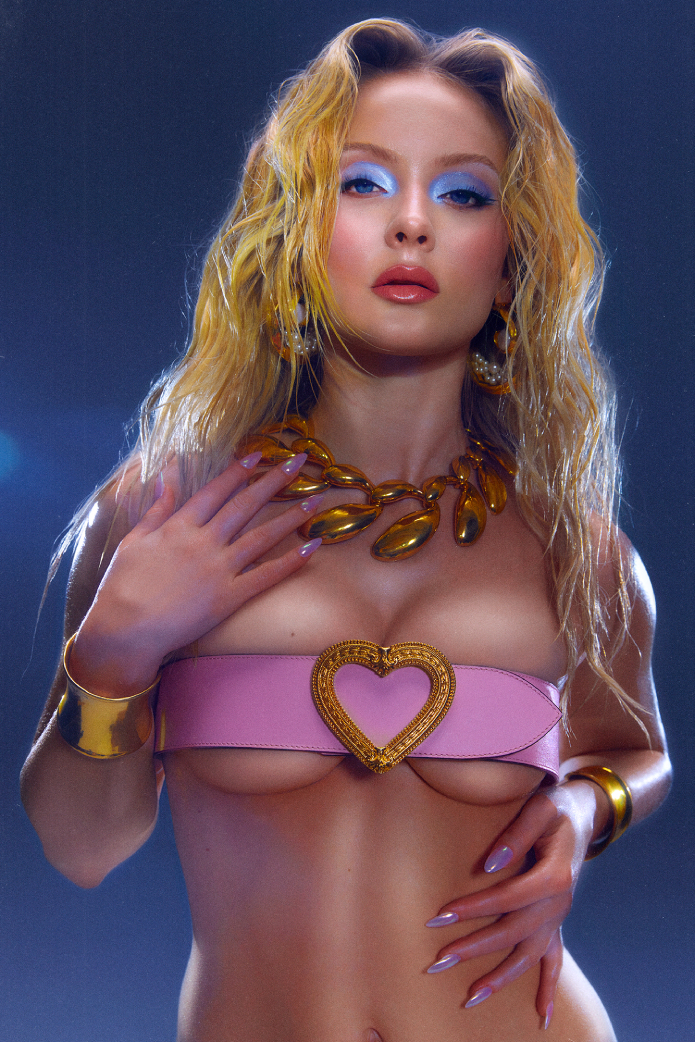
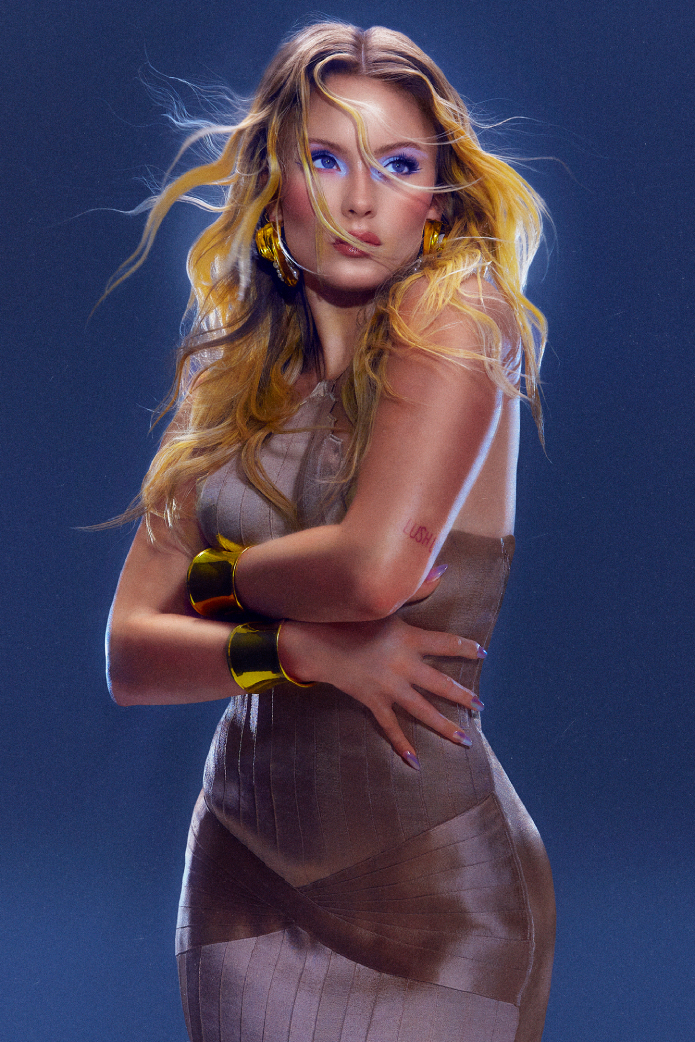
Larsson was acutely aware that releasing a song called ‘You Love Who You Love’ could have seemed trite, especially to her LGBTQIA+ fans. “I didn’t want it to be preachy, because I think my listeners know that you can love who you love,” she says. “And it’s more fun to twist it a little bit and say, ‘Well, you love who you love, but this man right here, you shouldn’t be with him. He’s bad for you.'” It’s a scenario you rarely hear in pop songs – but one we’ve all been in. “Oh, I’ve definitely been there,” Larsson says. “I remember going back and forth with this man for so long that my sister hated. My friends were like, ‘What the fuck are you doing?!'”
Larsson knows the bond between a cishet female pop artist and her queer fanbase is special and deep-rooted. “I think pop is an essential part of the LGBTQIA+ community,” she says. “I remember watching Madonna and Britney videos growing up, then getting into Beyoncé and Whitney Houston, and realising that all these really powerful pop girls had such a strong presence in the LGBTQIA+ world.” On top of this, pop music has always been championed by women and queer people because straight male gatekeepers have traditionally dismissed it as “disposable”. Larsson agrees – and says things aren’t changing fast enough. “Pop is still not being taken seriously,” she adds. “That’s because it’s one of the only genres where women have the stage and the popular songs. And for that reason, it’s given less credit than other genres that are male-dominated.”
She believes it’s not just the strength projected by performers such as Madonna, Beyoncé and herself that queer audiences respond to, but also the genre’s capacity for escapism. “There’s something about the show, the glitter, the performance of it all,” she says. “For some people, stepping into a character can help them find their truest self and that’s quite liberating. And sometimes this world sucks and you just want to put on a song that makes you feel good and takes you to a more blissful place. I know I do.”
It’s this heady escapism that Larsson wants to offer at her upcoming Venus Tour live shows, which will both project and be powered by female energy. “I want the whole setup to be an extension of this album, so it’s gonna be all female musicians and all female dancers,” she says. Few performers belt and strut as commandingly as Larsson, who says she spent “10,000 hours in front of the mirror” as a kid practising her stage moves. These days, it’s only “the talking between songs” that make her feel like “just regular me” as opposed to a hyper-confident pop star. “But even that is a very empowering feeling in a way,” she adds. “And for this era, it’s all about being strong, ethereal, a goddess. I’m ready.”
Zara Larsson’s fourth album, Venus, is out now via Epic
This interview is taken from the March 2024 issue of GAY TIMES. Head to Apple News + for more exclusive features and interviews from the issue.
